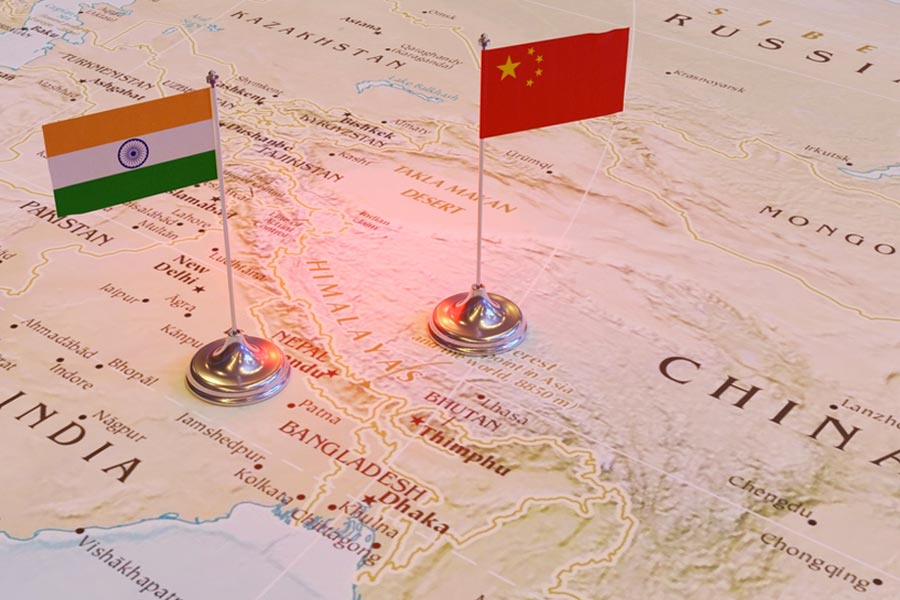The stalemate at the Depsang Plains in eastern Ladakh persists as the Chinese army continues to resist Delhi’s demand for disengagement from the strategic zone.
The zone is operationally critical for Delhi as the People’s Liberation Army is entrenched 18km inside India-claimed lines along the frontier, sources in the
security establishment said on Monday.
“The Chinese remain non-committal on disengagement from the occupied zones in the Depsang Plains. Negotiations are still going on to press for disengagement from the strategic zone,” a security official with the Union home ministry told The Telegraph.
Last week, Chinese foreign ministry spokesperson Mao Ning had said that troops had disengaged at four places in eastern Ladakh, including the Galwan Valley, and that the border situation was generally stable and under control.
Her comments came a day after external affairs minister S. Jaishankar said roughly 75 per cent of the “disengagement problems” with China had been sorted out
but the bigger issue was the increasing militarisation of the frontier.
Mao said that India and China had agreed during their meeting in Russia to work together to create conditions for improving bilateral relations.
On September 12, national security adviser Ajit Doval and Chinese foreign minister Wang Yi held talks on the sidelines of a meeting of the Brics high-ranking officials responsible for security in St Petersburg, Russia, where they discussed the progress made in the recent consultations on border issues, the Chinese foreign ministry said in a press release.
The Brics leaders’ summit is scheduled from October 22 to 24 in Russia. Prime Minister Narendra Modi and Chinese President Xi Jinping, among other leaders, are expected to attend it.
India and China have been engaged in negotiations since May 2020 and so far 21 rounds of military takes between the two sides have taken place to find a solution to the longstanding border standoff.
The Chinese army is said to have taken over close to 1,000sqkm of India-claimed territory along the Line of Actual Control in eastern Ladakh since May 2020.
There has been “partial” Chinese disengagement from the Galwan Valley, Pangong Lake, Hot Springs and Gogra, but at the price of Indian troops retreating inside Indian territory by an equal distance to create demilitarised “buffer zones”.
Under the disengagement agreement between the two sides, the Chinese army is
remaining within India-claimed lines at these places while the Narendra Modi government faces accusations of capitulating and handing the Chinese more territory on a platter.
Sources in the security establishment have expressed concerns over the large-scale build-up along the LAC in eastern Ladakh by the Chinese PLA and an equal amount of infrastructure development by them since the border standoff.
Both Indian and Chinese armies continue to deploy over 60,000 troops each with weaponry along the LAC in eastern Ladakh.
“The Indian Army has also mobilised resources and created habitats on a war footing at the multiple transgression points along the LAC to counter any further Chinese move to alter the status quo,” said another security official.
The Depsang Plains remain the only transgression point where no disengagement has taken place since the Chinese transgressed across India-claimed lines in Ladakh in May 2020.
Earlier intelligence reports had suggested the Chinese were building additional roads, helipads and military camps in the occupied areas, deepening the fears that Beijing wanted to declare a new status quo on the LAC.










